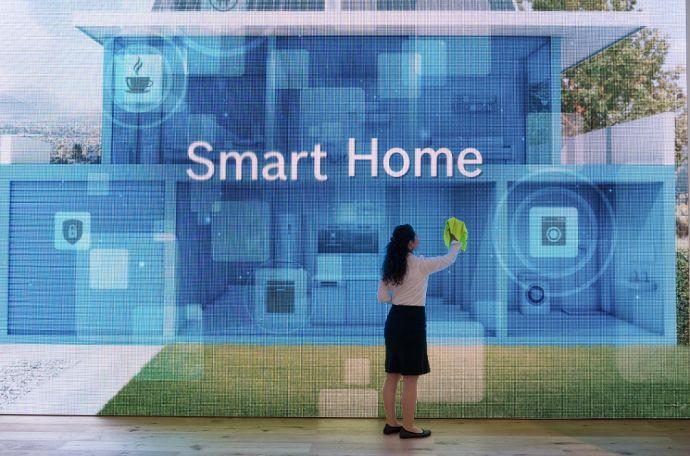
Smart-home-installations are getting more common in Germany: already one in four is using at least one product at home. (picture alliance /dpa/archive)
One in four Germans has installed at least one smart application device in their household, according to digital association Bitkom.
Bitkom, who commissioned the survey, said that 17 per cent of those asked had installed intelligent lighting systems, 14 per cent video surveillance systems and language assistants (13 per cent) are the most common.
Of those surveyed, 70 per cent of those questioned had heard the term "smart home" and among those 70 per cent were able to explain what it the term means.
The term "smart home" refers to the networking of household appliances or household technology, with the aims such as energy efficiency and increased comfort. Critics, however, have warned that the smart systems can lead to gaps in security.
The percentage of those surveyed with the intention to purchase a smart home device within the next 12 months was 37 per cent. Those devices that would be particularly in demand were heating thermostats controlled via the internet at 29 per cent, followed by smart vacuum cleaners at 15 per cent and garden tools at 12 per cent. These devices ranked ahead of language assistants at 10 per cent.
"Smart home applications are conquering the mass market," said Bitkom president Achim Berg on Tuesday. "In the future, they will be as prevalent in German households as electricity, light and running water," he added. However, it ensuring maximum safety is of top importance.
The reasons that are causing people to choose not to use smart home devices were primarily cost related. The biggest reason was that (37 per cent of people feared a costly installation and 36 per cent of people feared a high purchase price.
Another main reason was that 33 per cent of people were turned off out of fear that operating the systems was too complicated. But consumers also have security concerns: One in four or 26 per cent, fear hacker attacks, 24 per cent had privacy concerns, and 22 per cent held fears for the misuse of their personal data.

Notice: No person, organization and/orcompany shall disseminate or broadcast the above article on Xinhua Silk Roadwebsite without prior permission by Xinhua Silk Road.




 A single purchase
A single purchase









